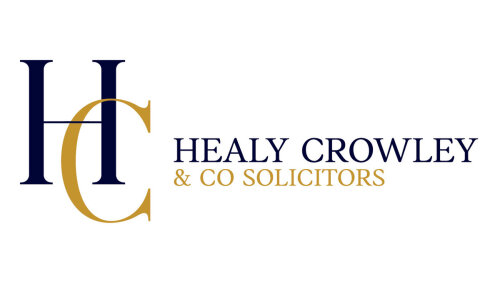Best International Trade Law Lawyers in Ireland
Share your needs with us, get contacted by law firms.
Free. Takes 2 min.
Or refine your search by selecting a city:
List of the best lawyers in Ireland
About International Trade Law in Ireland
International Trade Law in Ireland governs the rules and regulations involving the import and export of goods and services across international boundaries. This area of law incorporates a variety of disciplines, including contract law, business law, tax law, and regulatory compliance. With Ireland being a significant hub for international trade within the European Union, understanding these laws is essential for businesses operating in or with Irish entities. This legal field involves adherence to European Union regulations, as well as global trade agreements.
Why You May Need a Lawyer
Engaging in international trade can be complex and involves significant risk and regulatory compliance. You may need a lawyer in various situations, such as:
- Navigating import and export regulations and ensuring compliance with local and international laws.
- Drafting and negotiating international trade contracts.
- Dealing with trade disputes or litigation involving international trade agreements.
- Addressing issues related to tariffs, customs duties, and trade barriers.
- Ensuring compliance with EU trade sanctions or export controls.
- Guidance on intellectual property rights protection in international trades.
- Advising on the impact of Brexit and similar geopolitical developments on trade.
Local Laws Overview
International Trade Law in Ireland involves several key legislations and regulations, including:
- EU Regulations: Since Ireland is an EU member, it adheres to EU trade laws, which include rules on the internal market, customs duties, and external trade.
- Irish Customs Law: Governed by the Customs Act 2015, which details procedures, duty exemptions, and requirements for traders.
- Competition Law: Ensured by the Competition and Consumer Protection Commission (CCPC) to prevent anti-competitive practices.
- Export Controls: Managed by the Department of Business, Enterprise, and Innovation, ensuring compliance with export restrictions and embargoes.
Frequently Asked Questions
1. What is International Trade Law?
International Trade Law encompasses laws and agreements that govern trade between nations, including the transfer of goods and services, compliance with trading standards, and resolving trade disputes.
2. Is Ireland's trade law aligned with EU regulations?
Yes, as a member of the European Union, Ireland adheres to EU regulations concerning international trade, thereby aligning its national laws with EU directives and regulations.
3. What is a common issue faced by companies engaged in international trade?
One common issue is compliance with varying national trade regulations, tariffs, and customs procedures, which can often lead to legal disputes if not properly addressed.
4. How can a lawyer assist with customs issues in international trade?
A lawyer can ensure that documentation is compliant with customs laws, assist with tariff classifications, and represent clients in disputes with customs authorities.
5. What are trade sanctions and how do they affect businesses?
Trade sanctions are governmental actions that restrict or ban trade with specific countries, potentially affecting businesses by limiting their export and import options or requiring additional compliance.
6. Do trade agreements affect how my business operates internationally?
Yes, trade agreements can affect tariffs, market access, and regulatory standards, impacting costs and legal obligations in international markets.
7. How can international trade disputes be resolved?
Disputes can be resolved through negotiation, mediation, litigation, or arbitration, with arbitration often being the preferred method due to confidentiality and enforceability issues.
8. What role does the World Trade Organization (WTO) play in Ireland's trade law?
The WTO provides a framework for international trade negotiations and dispute settlements, which Ireland adheres to as part of the EU.
9. What is the impact of Brexit on international trade law in Ireland?
Brexit has introduced changes in customs procedures, tariffs, and regulatory standards between Ireland and the UK, necessitating new trade agreements and legal compliance measures.
10. What should I consider when drafting international trade contracts?
Consider including terms on jurisdiction, dispute resolution, payment terms, delivery, risk sharing, and compliance with applicable international laws.
Additional Resources
For further guidance and information about International Trade Law in Ireland, consider the following resources:
- Department of Enterprise, Trade, and Employment: Offers information on trade regulations and support for businesses.
- Irish Revenue Commissioners: Provides guidance on customs procedures and tariff classifications.
- Enterprise Ireland: Supports Irish businesses in expanding their trade internationally.
- Competition and Consumer Protection Commission (CCPC): Enforces competition laws and provides guidance on anti-competitive practices.
Next Steps
If you need legal assistance in International Trade Law, consider the following steps:
- Research and select a qualified lawyer specializing in International Trade Law.
- Prepare all relevant documents and information related to your trade activities or legal concerns.
- Schedule a consultation to discuss your specific needs and get professional advice.
- Ensure clear communication regarding fees, timelines, and the scope of legal services provided.
By taking these steps, you will be better prepared to address any international trade law challenges effectively.
Lawzana helps you find the best lawyers and law firms in Ireland through a curated and pre-screened list of qualified legal professionals. Our platform offers rankings and detailed profiles of attorneys and law firms, allowing you to compare based on practice areas, including International Trade Law, experience, and client feedback.
Each profile includes a description of the firm's areas of practice, client reviews, team members and partners, year of establishment, spoken languages, office locations, contact information, social media presence, and any published articles or resources. Most firms on our platform speak English and are experienced in both local and international legal matters.
Get a quote from top-rated law firms in Ireland — quickly, securely, and without unnecessary hassle.
Disclaimer:
The information provided on this page is for general informational purposes only and does not constitute legal advice. While we strive to ensure the accuracy and relevance of the content, legal information may change over time, and interpretations of the law can vary. You should always consult with a qualified legal professional for advice specific to your situation.
We disclaim all liability for actions taken or not taken based on the content of this page. If you believe any information is incorrect or outdated, please contact us, and we will review and update it where appropriate.
Browse international trade law law firms by city in Ireland
Refine your search by selecting a city.

















